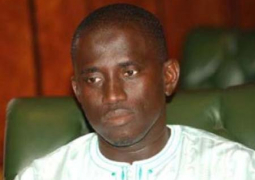The recent executive order that all GSM operators in the country must register all SIM cards on their network or risk losing their license, has raised serious concerns among members of the general public, with many expressing doubts as to the confidentiality of the information collected during the registration process.
However, for many people who spoke to this paper yesterday, the move could not have come at a better time than now taking into consideration crimes committed, especially those caused through mobile phone calls.
Despite being the norm in most African countries, many Gambians are of the view that the move should be given a second thought.
“This is really not good for both the GSM operators and the customers. For me, I believe there is a motive behind all this. I think there must be a vigorous public sensitization by PURA in collaboration with the GSM operators, so as to make the public understand the motive,” one Lamin Ceesay of Bakau told The Point.
However, despite raising concerns over the security aspect of the information collected, many people maintained that registering all SIM cards will help in reducing the crime rate in this country.
“This is really something good as it will protect all of us and reduce the number of crimes in this country. This is even not something new, as other countries in the sub-region are doing the same. So I believe we have to catch up with the rest of the world,” said Amie Bah, a resident of Bakoteh.
A press release from the Gambia Public Utilities Regulatory Authorities (PURA) said the Ministry of Information and Communication Infrastructure in collaboration with PURA informs the general public and subscribers to all GSM mobile telephone operators that effective from 15th April 2011, all GSM operators are required to register details of any person purchasing a SIM card.
According to the press release, the exercise is aimed at safeguarding the general public’s welfare and security.
“The GSM service providers are obliged to ensure that the information collected from subscribers is kept secure, confidential and not tampered with. The information collected shall not be disclosed to any person unless as required by law. The information collected shall only be used for the purpose for which the registration exercise is being undertaken,” the release stated.
“I have been receiving text messages on a daily basis to go and register my SIM card, but really I’m not convinced as to whether there will be any confidentiality in the whole process. Yes, it is the norm in other countries, but I still feel that the general public needs more explanation as to the rationale behind all these,” Ousainou Njie, a student, said.
Bintou Njie, a resident of Fajara, told this paper: “Really, I don’t think there is anything wrong in this. May be for those who never travel outside this country, this might be a new thing to them, but honestly speaking this is the norm in most of the countries, not only in Africa, but the world in general. Importantly also, this will help in a great deal to reduce unnecessary crimes that we have seen happen in this country.
“There is nothing bad in this, and I hope Gambians and mobile phone users, in particular, will get to understand better and comply with the orders,” she added.
“This will be a very difficult task, and unless we put an end to the careless distribution and selling of SIM cards, the objective of the exercise will not be achieved. GSM companies must be regulated first, in the way and manner they give out SIM cards, or else it will be difficult, definitely,” Abdoulie Bah, a vendor at



